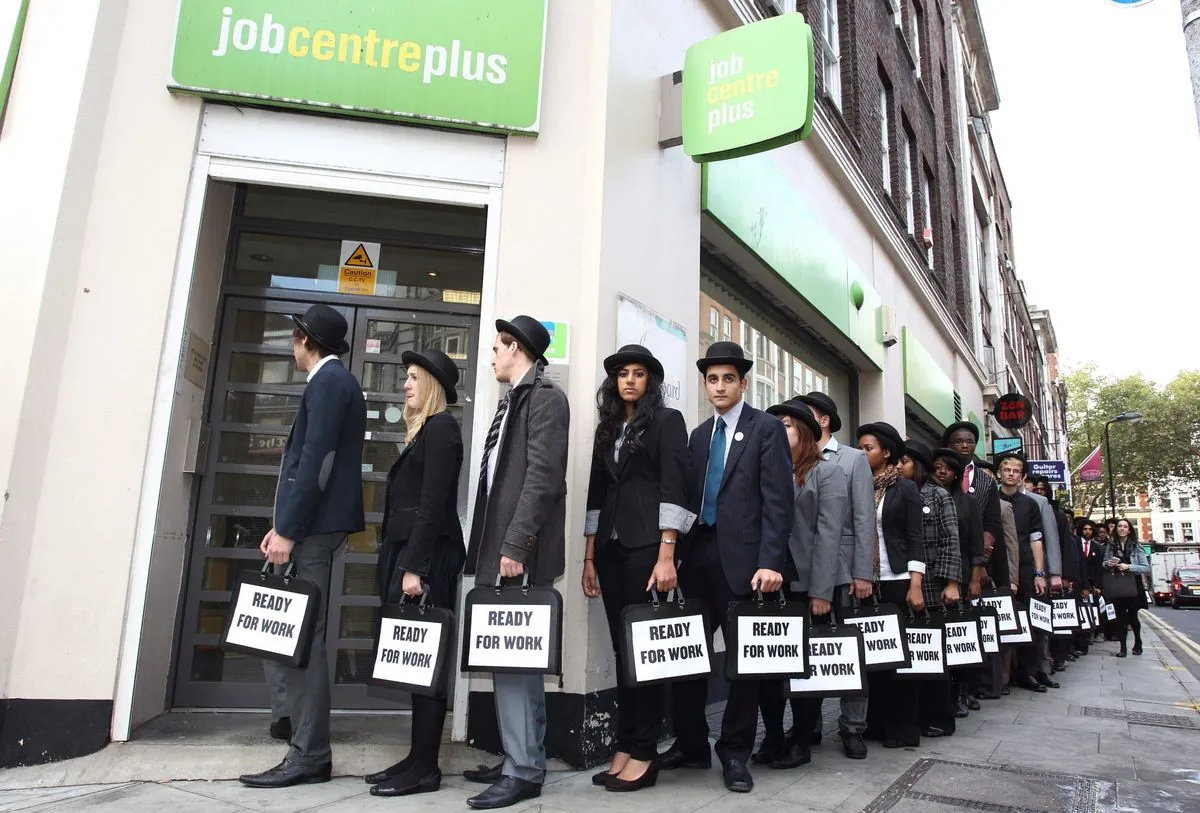Youth Unemployment Surge Threatens UK Economic Growth Plans
Despite overall unemployment drop, youth joblessness hits 13.3%. Half a million young adults out of work, posing challenges to government's economic strategies and public finances.

Recent labor market data in the United Kingdom has revealed a concerning trend: while overall unemployment has decreased, youth joblessness has surged significantly. The Office for National Statistics (ONS) reported that the unemployment rate for those aged 18-24 reached 13.3% in the three months leading to July 2024, marking the highest level since the early 2021 lockdown period.
This surge in youth unemployment presents a significant challenge to the UK government's economic growth plans and public finance objectives. With approximately half a million young adults now out of work, many of whom are grappling with the aftermath of disrupted education during the COVID-19 pandemic, the situation has become increasingly dire.

The contrast between youth employment trends and those of other age groups is stark. While the number of young people in work has fallen by over 50,000 in the past year to 3.4 million, employment among older age groups has seen substantial growth. The number of 35 to 64-year-olds in work has increased by more than 5%, and employment among those aged 65 or older has risen by almost a quarter.
Economic inactivity among young people has also risen, with around a third now classified as neither working nor seeking employment. This increase, from below 30% pre-pandemic, coincides with a significant rise in long-term sickness across the population, with mental health concerns particularly prevalent among the young.
The implications of this youth unemployment crisis extend beyond immediate economic concerns. Research has shown that periods of unemployment early in one's career can have long-lasting effects on future earnings and job prospects. Neil Carberry, chief executive of the Recruitment and Employment Confederation, emphasized this point, stating:
The pandemic's impact on traditional pathways to employment, such as work experience and in-person job searching, has exacerbated the problem. Industries that typically offer entry-level positions, like retail and hospitality, have also reduced hiring, further limiting opportunities for young job seekers.
Labour's proposed workers' rights reforms, including enhanced flexible working options and immediate sick pay benefits, may inadvertently worsen the situation. A survey by the Institute of Directors found that 57% of business leaders are less likely to hire workers due to these planned reforms, potentially affecting young, inexperienced workers the most.
Addressing this crisis requires a multifaceted approach. Jonathan Reynolds, the Business Secretary, has emphasized the need to revive the NHS and get people back to work to benefit the economy. However, tackling youth unemployment specifically may require targeted interventions, such as enhanced job training programs, incentives for businesses to hire young workers, and improved mental health support.
As the UK government aims for ambitious economic growth targets and improved public finances, the rising tide of youth unemployment poses a significant obstacle. Resolving this issue is crucial not only for the economic well-being of young adults but also for the long-term prosperity of the nation as a whole.


































